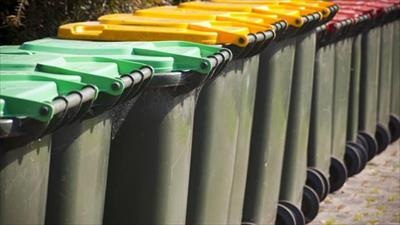
 17-Sep-21
17-Sep-21 
Hindustan Unilever Limited has been working on safe recovery and recycling of over 1 lakh tons of plastic through an EPR programme covering more than 100 towns across India. 2021 onwards it will collect and process more plastic packaging waste than the plastic in packaging used by it. The Company will enable processing of over 1 lakh tons of post-consumer plastic waste through collection from all of the states and Union Territories.
Since 2018, HUL has facilitated environmentally safe disposal of more than 1.2 lakh tons of post-consumer-use plastic waste. In 2020, despite the Covid pandemic, the Company stepped up its efforts in the reduction of plastic waste. This has been made possible through investment and partnerships to improve the waste management infrastructure in over 100 towns across India.
HUL has partnered with various organisations for the collection of plastic waste including Saahas, Carpe, Recykal, Planet Savers, RaddiConnect, Geoycle, Ramky Enviro. Through its partners and with support from Municipal Corporations, the Company has reached out to housing societies and commercial establishments to improve the collection of plastic waste.
The Company is also working in partnership with the United Nations Development Programme (UNDP) and the international organization Xynteo. Through these partnerships, material recovery facilities have been set up in Mumbai to demonstrate the feasibility of inclusive end-to-end waste management solutions. Apart from this, the Education Department of Maharashtra, HUL and Xynteo have rolled out a digital school curriculum focused on the importance of segregation, collection and safe disposal of waste. The programme reached nearly one lakh children in Maharashtra during its pilot last year and is currently being scaled across the state.
Sanjiv Mehta, Chairman and Managing Director, HUL, said, “Our vision is one where key stakeholders work together to ensure that plastic stays in the economy and out of the environment. As a responsible company, we are committed to playing our part. We believe that this is a collective responsibility, and each stakeholder needs to play an active role in managing plastic waste to fulfil the vision of Swachh Bharat Abhiyan.“
Willem Uijen, Executive Director Supply Chain, HUL, explained, “This is in line with the commitment we have made for a circular economy. We have taken a head start on implementing the proposed Extended Producer Responsibility (EPR) framework for plastic waste management. HUL has also developed an ecosystem of partners enabling the collection and safe processing of plastic packaging waste. We have now scaled up our joint efforts to collect more plastic packaging waste than our total plastics footprint, four years ahead of what we previously thought was possible.”
Natasha Zarine, CEO of CARPE (Centre for Applied Research and People’s Engagement) said, “With HUL's support we have carried out disposal of large quantities of plastic waste since 2018 in a safe and environment friendly manner. The partnership has also helped positively impact the lives of workers involved in waste collection. HUL has been the pioneer in implementing EPR in India and their support has helped our start-up grow and expand into new territories. This helped us to work towards our national ambition of Swachh Bharat”.
Source HUL
Previous PressRelease
Next PressRelease
{{comment.DateTimeStampDisplay}}
{{comment.Comments}}